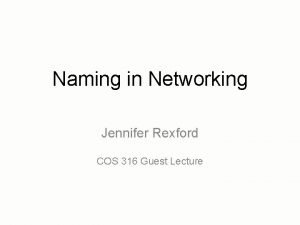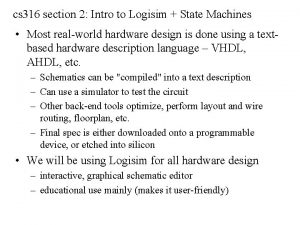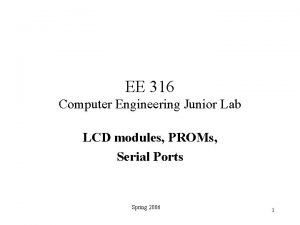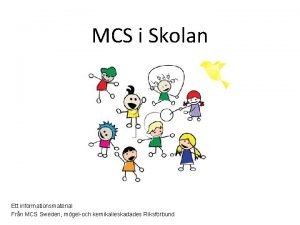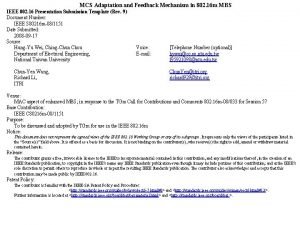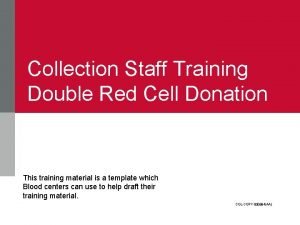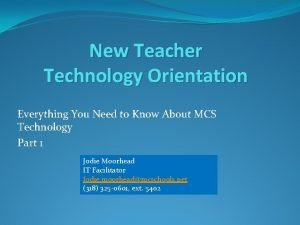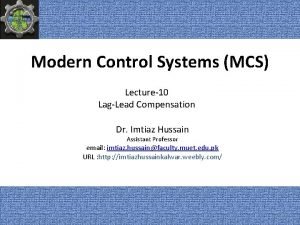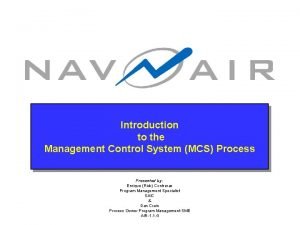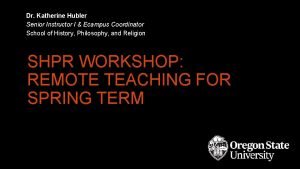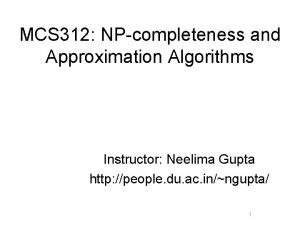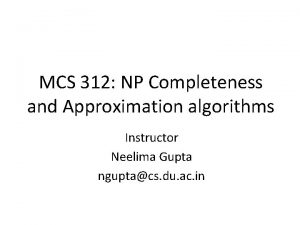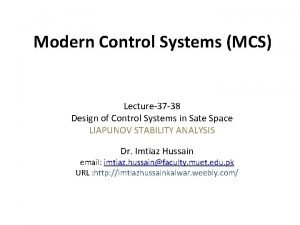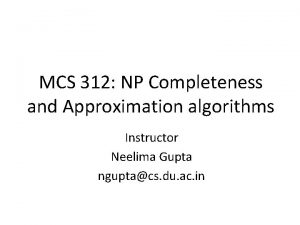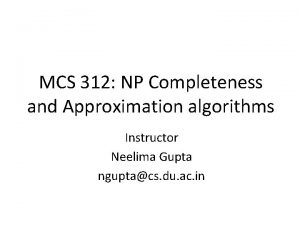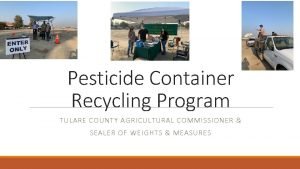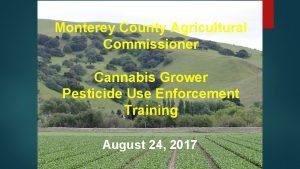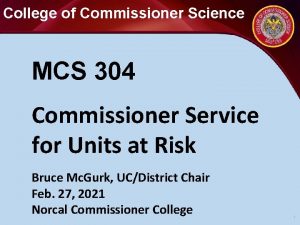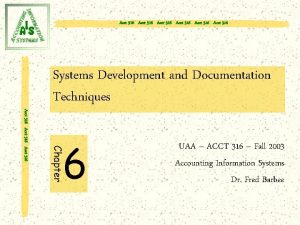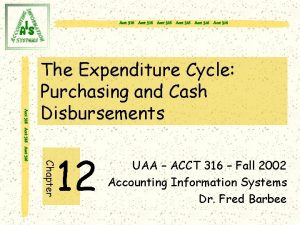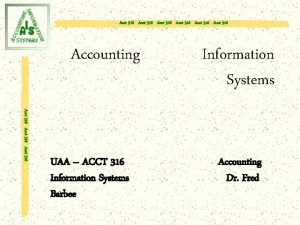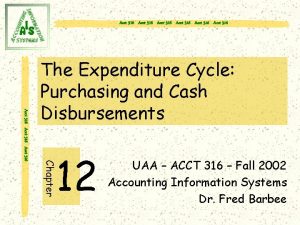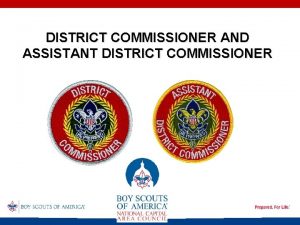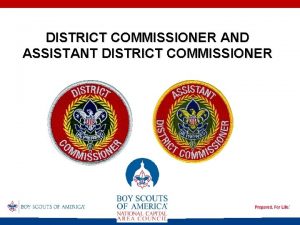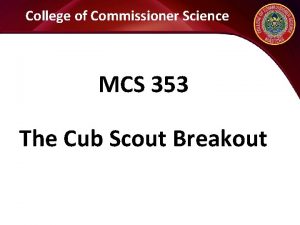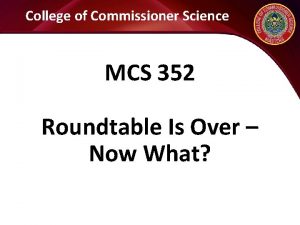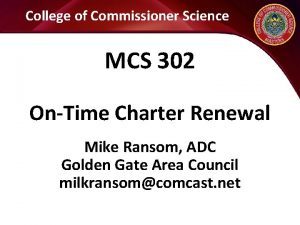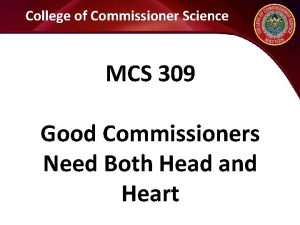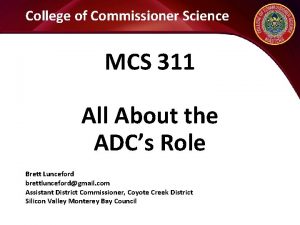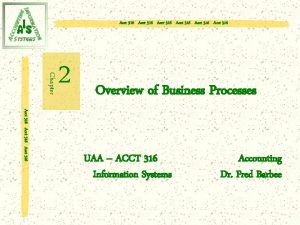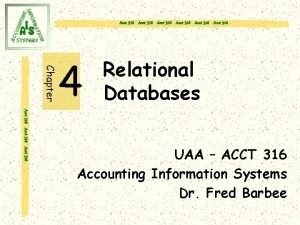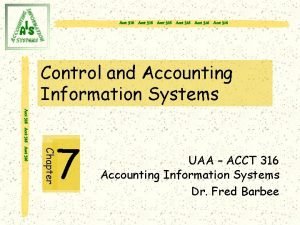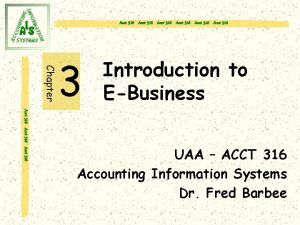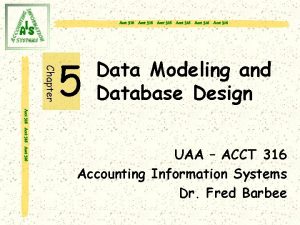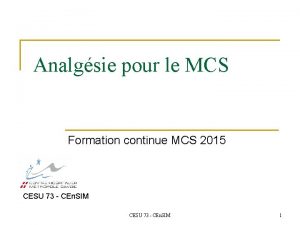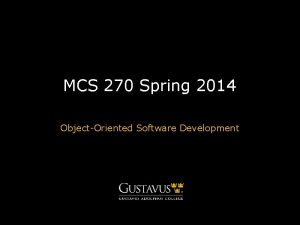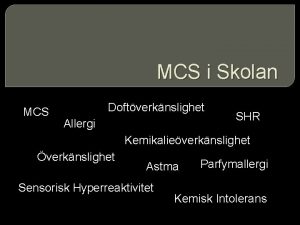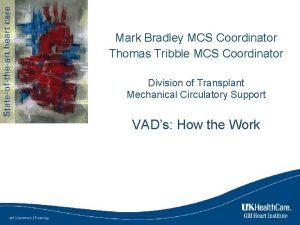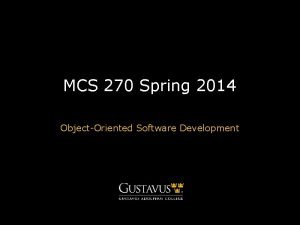College of Commissioner Science MCS 316 Effective Unit


























- Slides: 26

College of Commissioner Science MCS 316 Effective Unit Service In Rural Communities Mike Bethel, District Commissioner San Joaquin District Sequoia Council













Introduction “…what suits one particular troop or one kind of boy, in one kind of place, will not suit another within a mile of it, much less those scattered over the world and existing under totally different conditions. ” Lord Baden-Powell

Course Objectives • Understand the unique situation of rural units and working with them. • Learn methods for recruiting leaders and scouts in small and spread out communities • Learn methods to reduce cost of membership for families. • Learn methods for providing scouting in small units.

A Different Approach • Trust is earned not granted in rural communities. It takes time and commitment. • “Locals” are people who live near an isolated Scouting unit and will do most anything to help people in their community. • Rural people are busy. Everything takes longer. • Lone Scout Commissioner or committee person may choose to implement the Lone Scout plan and act as liaison between the council and Lone Scouts and their counselors.

Recruiting in Rural Communities Cautious approach: • District Executive (DE) needs to engender the trust of locals. A fragile trust relationship will break if the DE doesn’t walk their talk • Face-to-face discussion is preferred • Locals are most comfortable within their own community • Take the time to learn the community’s culture

Finding The Right Leader Locate the one or two people the community respects and engender their trust by being respectful and honest • Go to where they are • Focus on serving youth for the community • Visit schools and volunteer your time

Other Options for Recruiting • Locate previous scouters • Visit volunteer fire departments • Work with local law enforcement • Attend local events • Potluck dinner • Sporting events • What other ideas do you have?

Considerations • Be flexible and adapt to the community • Be responsive • Walk your talk • Make yourself available • Listen to unit people • Be people first

People Considerations • Provide immediate recognition • Show’n’do training • Look at total unit situation—big picture • Don’t be “Super Scouter” • Be prepared to spend more time • Empathize • Communicate face-to-face if possible

People Considerations Continued • Don’t label / don’t blame • Don’t take sides • Avoid overtraining / “ideal” expectations • Be aware of Scouter’s life events • Respect cultures and lifestyles • Think of alternative approaches

Reducing Costs • Cost may be an issue for some communities • Reduce the cost by • Sharing resources within the unit by passing uniforms to other scouts • Unit printed T-shirts rather than official uniform • Shared books with separate records • Multiple units combining for activities • Camperships • Membership scholarships

Rural Options • Den aides instead of den chiefs • Multi-aged dens • Lone Cub Scouts / Boy Scouts • Wagon-wheel troops — weekly patrol meetings, monthly troop meetings • School bus dens / patrols • Roundtable mailboxes / email roundtable information • Multi-unit activities and camping

References

Questions? Comments?
 316 stainless steel table
316 stainless steel table Princeton cos 316
Princeton cos 316 Cs 316
Cs 316 316 loài vẹt
316 loài vẹt Ee 316
Ee 316 Ee 316
Ee 316 Ucc 2 609
Ucc 2 609 Mcs controls training
Mcs controls training Vad är mcs
Vad är mcs Mcs feedback
Mcs feedback Cisco mcs 7800 end of life
Cisco mcs 7800 end of life Mcs motivo causa solução
Mcs motivo causa solução Mcscontrols
Mcscontrols Donormath
Donormath Jpams mcs
Jpams mcs Mcs weebly
Mcs weebly Linkit 7697 wifi
Linkit 7697 wifi Mcs controls training
Mcs controls training Katherine hubler
Katherine hubler Mcs 312
Mcs 312 Mcs 312
Mcs 312 Mcs weebly
Mcs weebly Mcs magnum controller
Mcs magnum controller Mcs 312
Mcs 312 Mcs 312
Mcs 312 Tulare ag commissioner
Tulare ag commissioner Monterey county ag commissioner
Monterey county ag commissioner

